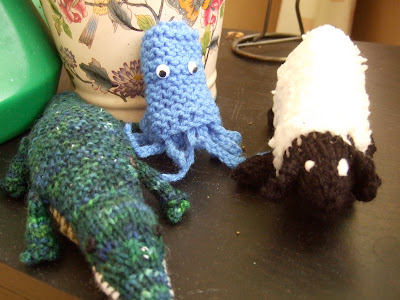Last weekend myself and the Curse spent a few days in Glasgow - originally planned around the fact that I was doing the Great Scottish Swim but seamlessly converted into a city break when the swim ended up being cancelled because of a blue-green algae infestation.

In fact we stayed in a rather luxurious apartment on the Oakshaw ridge in Paisley, just across the road from the
Coats Observatory and surrounded by beautiful Victorian buildings, lingering evidence of the town's prosperity. Paisley is about 10 minutes on the train from Glasgow and has some glorious Victorian and early 20th century architecture. My particular favourites were the Bull Inn and St Matthews Church, both designed in fabulous Art Nouveau style by local architect William Daniel McLennan.

I was disappointed not to be able to get inside the church, but we did have a few pints in the
Bull, which has the most glorious stained glass windows and very characterful bar. They just need to improve their food offerings and they have a winning combination; the ale was very good.


I dug these fabulous pictures out from Royal Commission on the Ancient and Historical Monuments of Scotland website - they are so much better than those on the Bull's own website, and although the interior has changed somewhat since these were taken, much of it remains as it is in these photos.

I also enjoyed the
Russell Institute (above) in its fine Beaux Arts grandeur - designed by James Steel Maitland in 1923 and gifted to the town as a children's clinic by Agnes Russell in memory of her two bachelor brothers who died in 1920 and 1923. The bronze sculptures of sick children around the building are somewhat sinister-looking, but the proportions of the structure and its careful details pleased me.

The Oakshaw ridge has several quaint cobbled footpaths leading up to the road, and is graced by several churches - this being the most dramatic and picturesque.
In fact, much of Paisley's architecture is beautiful. But the town centre has dozens of empty shops and bargain stores. Even M&S has ditched its regular model for an 'outlet' store.
We did not see a single independent butcher, baker, grocery store or greengrocers in the town centre - and a small Coop was the only food retailer we could get to by foot. In fact many of the units that were still occupied in the town centre were pound shops, cheap clothes stores, mobile phone stores and so on, although some high street regulars such as WH Smith, Boots, Top Shop etc still perist. In general, the number of empty units and the quality of the remaining retailers was profoundly depressing.
The council is clearly making some effort to stop the slide continuing - empty units have colourful murals stuck on their windows to make them look like they are occupied, with 'Imagine your home decor shop here!' written on them. The fact remains that two relatively recent mall/shopping centre developments are probably responsible for the fact that so many other units lie empty.
Additionally, between them, Paisley and its close neighbour Renfrew them have a huge Morrisons, an Asda, a Sainsbury's and a Tesco superstore. All of them are out of town.
The knock-on effect on the life of the town centre is clear; we also found a dearth of restaurants and decent pubs (although it seems able to support dozens of drinking barns including my favourite, 'Cafuffles'. In today's parlance, WTF?!).
Paisley deserves better.
Although one of the town's recommended restaurants had closed down, we did find
Cardosi's, which offered some very tasty Italian grub, and Castelvecci which cooked up the fab northern supper mentioned in the last post.

We spent quite a lot of time in Glasgow too, enjoying a walk along the River Clyde from the so-called 'Squiggly Bridge' (above) to the
'Squinty Bridge' further west.

A couple of happy hours were spent wandering the
Necropolis in Glasgow, in suitably gloomy weather. We admired the views, examined the detail of the monuments and built our own imaginary tales around the words on the headstones. Many of the graves had suffered with age and corrosion of the iron rods holding them together, and their constituent pieces were heaped randomly together. I wondered how often visitors came to some of the quieter corners and how long it was since the names on some of the headstones had been read. Sobering but fascinating at the same time.

Love the melodramatic exclamation mark on this headstone!

































